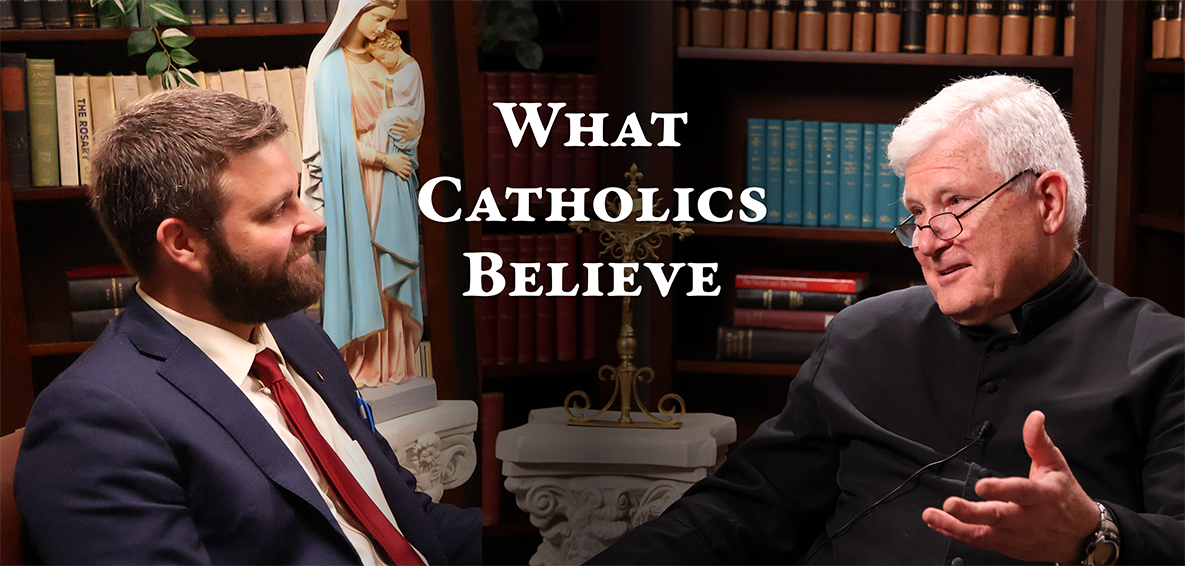Union With Rome - Part II

The Catholic Church holds that Sacred Tradition and Sacred Scripture together are the two "fonts" of Divine Revelation. The papacy itself is actually part of Catholic Tradition, and cannot exist apart from Catholic Tradition or even be understood apart of Catholic Tradition. Thus, in Catholic terms, the papacy can never be separated from or opposed to Catholic Tradition without losing all of its meaning. The papacy was instituted by Christ precisely to guard, serve, and promote Catholic Tradition - not to critique it, to attack it, and to destroy it. *
The very notion that a Catholic could ever be forced to choose between faithfulness to Catholic Tradition, on the one hand, and obedience to the magisterial authority of the Catholic Church, on the other hand, is utterly absurd. The very idea that the magisterial authority of the Catholic Church and the authority of Catholic Tradition could ever be mutually opposed and at odds with each other is unthinkable in terms of the Catholic Faith, because both have their origins in the authority of God Himself. Catholic Tradition is guided by the Holy Ghost, and Catholic popes are the Vicars of Christ. It is no more possible for a Catholic pope to invoke Christ's authority to attack Catholic Tradition than the authority of the Second Person of the Blessed Trinity could be at odds with the authority of the Third Person of the Blessed Trinity. It is impossible, therefore, that Catholics could ever be required to choose between the papacy and Catholic Tradition, since they are, in fact, inseparable and the papacy itself is subordinate to Catholic Tradition.. To the extent that a pope rejects Catholic Tradition, he necessarily rejects the papacy itself. To the extent that anyone repudiates Catholic Tradition, he repudiates the papacy with it. One can only be in union with Rome by adhering to Catholic Tradition.
The very un-Catholic idea that Magisterium and Tradition could contradict one another is implied in the statement of Paul VI, when he said that "we are witnessing the self-destruction of the Catholic Church." The Catholic Church cannot be destroyed, much less destroy itself. The unblemished Bride of Christ cannot commit suicide. The suggestion is an enormity! Only by erroneously thinking that the Catholic Magisterium and Catholic Tradition could be engaged in battle to the death could Paul VI even contemplate that the Church could self-destruct. He was right in this: if Tradition and Magisterium could attack each other, then the Church could self-destruct.
Some Catholics are confused today because they put the issue this way: "Catholic Tradition requires that Catholics be obedient to the pope; therefore, one cannot be faithful to Catholic Tradition by defying the papal authority." This leads them to follow a serious error into an impossible situation. It puts them squarely on the wrong track that the Catholic Magisterium and Catholic Tradition can be opposed to each other, so that they think they are forced to choose between completely faithful to Catholic Tradition or being completely obedient to the pope - thus, Cardinal Ottaviani's "tragic alternative." They wind up compromising both Tradition and Magisterium by attempting to follow Catholic Tradition only to the extent that they are allowed to follow Catholic Tradition while obeying the orders contrary to Catholic Tradition.
The source of their confusion consists in this: Catholic Tradition does require that Catholics obey the pope in all things Catholics; but should a pope command something that is opposed to Catholic Tradition, damaging to the Church and injurious to souls, Catholic Tradition requires Catholics to refuse to render false - or "indiscreet" - obedience and also requires Catholics to prevent other from following such a command. (St. Thomas Aquinas and St. Robert Bellarmine)
Being in truth a "traditional Catholic" means that one is necessarily in union with Rome by adhering faithfully to Catholic Tradition. When anyone rejects Catholic Tradition, he thereby cuts himself off from "Rome" and the papacy, and the Catholic Church.

